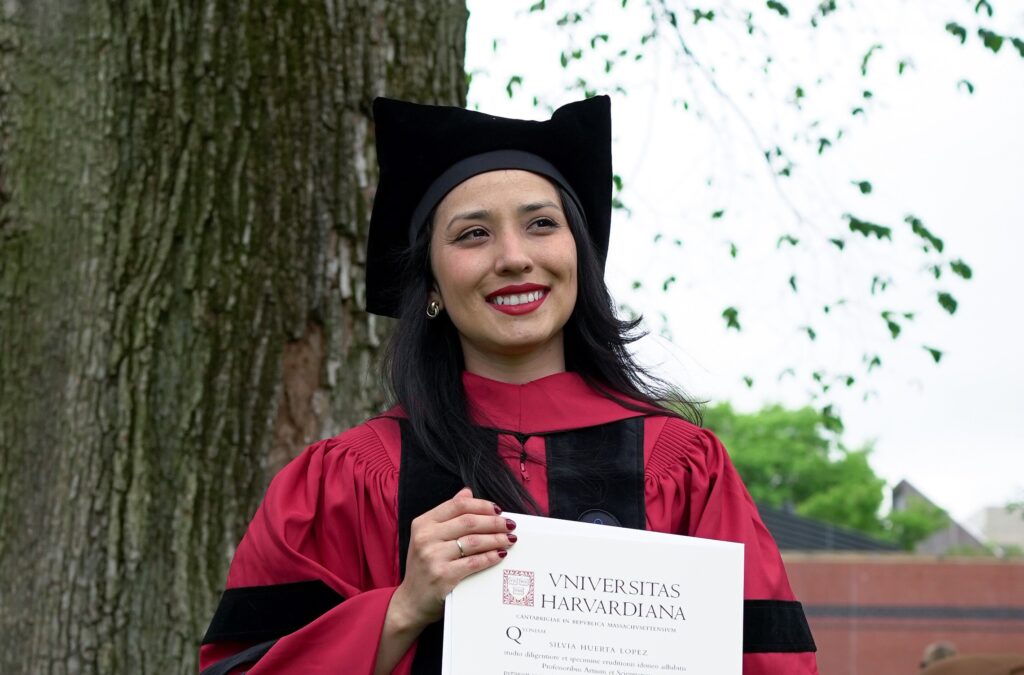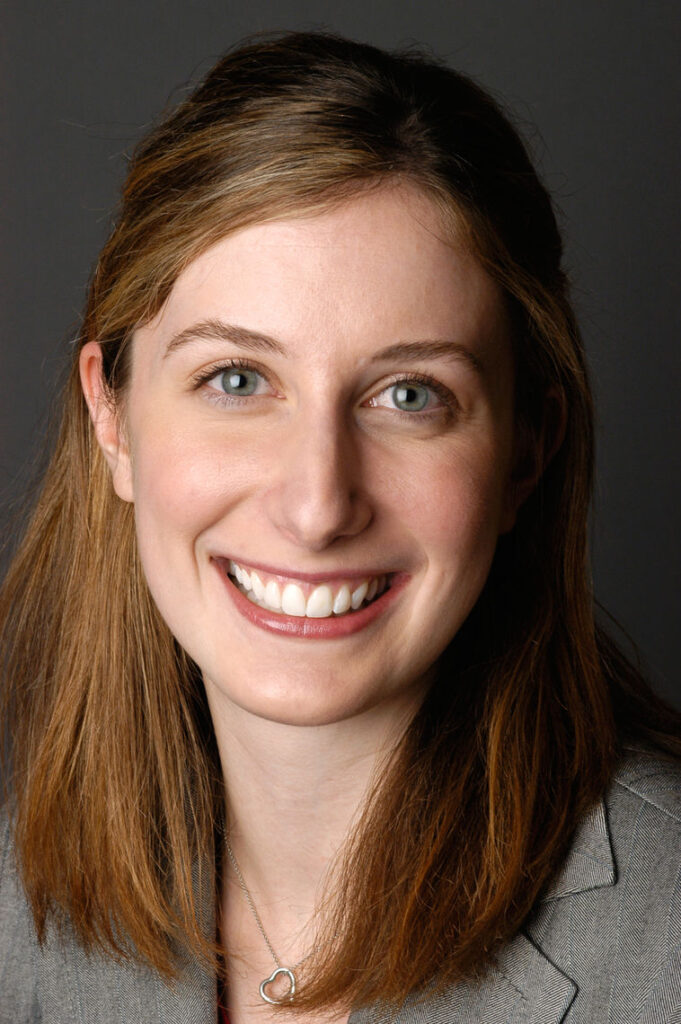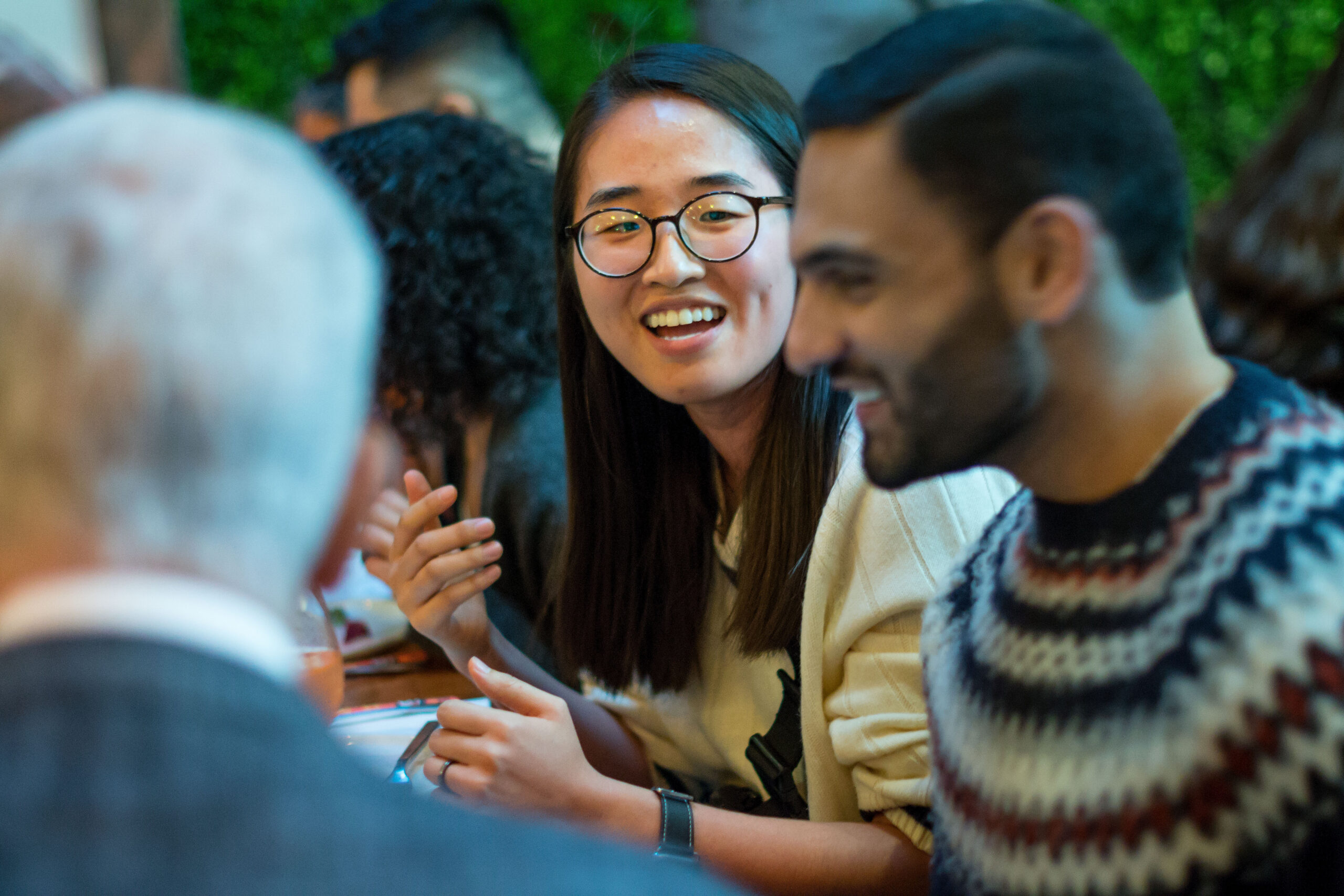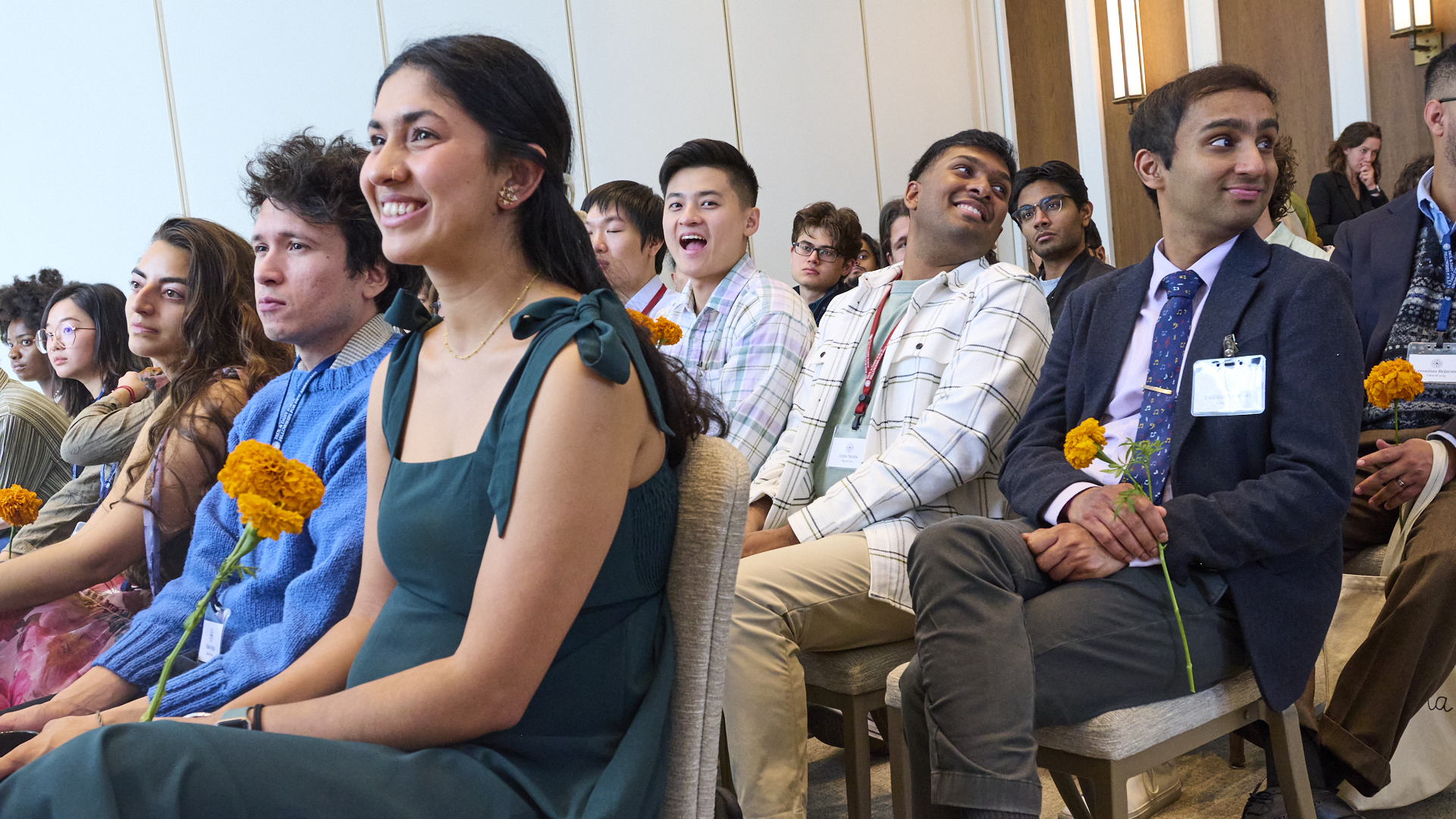Q&A with MD/PhD Student Silvia Huerta Lopez

2023 Paul & Daisy Soros Fellow Silvia Huerta Lopez spent her early childhood living in the rural countryside of El Zapote de Cuendeo in Michoacan, Mexico. Poverty and the lack of medical infrastructure made access to care and education nearly impossible and eventually led Silvia and her family to immigrate to the United States when she was six.
After obtaining an AA in biology at Essex County College, Silvia went on to receive the Jack Kent Cooke Scholarship and transferred to the University of Pennsylvania (Penn) where she obtained a BA in biology. At Penn, Silvia began her research training in the laboratory of Doctor Robert Heuckeroth at the Children’s Hospital of Philadelphia where she studied the molecular and cellular mechanisms that control enteric nervous system (ENS) development and the genetic basis of Hirschsprung’s Disease. Her work was published in the journals Gastroenterology and Developmental Biology. While at Penn, Silvia worked at Puentes de Salud Health Clinic to provide improved health literacy and access to medical care for undocumented immigrants without health insurance.
Empowered by the work at Puentes de Salud and the impact of her research on patient care, Silvia began her medical and research training through the Harvard & MIT MD/PhD program. While at Harvard, she co-founded Quetzales de Salud, a non-profit organization that aims to improve access to primary medical care for undocumented immigrants through medical accompaniment. The organization supports Spanish-speaking patients through one-on-one phone calls with medical trainees before, during, and after clinic appointments or hospitalizations to ensure they have the resources and services to receive quality medical care. Silvia was awarded the Dean’s Community Service Award in recognition of her work though Quetzales de Salud during the pandemic.
We caught up with Silvia about what’s next and what the Fellowship has meant to her:
Where are you with your graduate program now?
I recently completed my PhD in biological and biomedical sciences this May, supported by The Paul and Daisy Soros Fellowships for New Americans. It was an incredibly rewarding experience that deepened my understanding of scientific research and my commitment to mentorship. This July, I will return to medical school to complete the final phase of my MD training. My next step is a clinical clerkship in surgery at Brigham and Women’s Hospital.
Can you tell us more about your graduate studies? What questions are you pursuing and what is the focus of your studies?
My thesis work focused on uncovering the brain circuits that allow animals to prioritize sensory information based on internal physiological needs. Using a combination of behavioral, anatomical, and functional approaches in mice, I identified a thalamic relay that acts as a critical node for need-dependent sensory gating. Specifically, I found that thirst signals, encoded by a subset of hypothalamic neurons, modulate this thalamic circuit to selectively enhance the perception of water-predictive odors. This work sheds light on how internal states like thirst can dynamically shape sensory processing and attention, helping animals adaptively respond to a changing environment. These findings offer broader insight into the neural mechanisms that align behavior with homeostatic demands.
There are so many paths beyond college—why did you feel graduate school was the best next step for you?
Pursuing a PhD in biological and biomedical sciences felt like the right next step to deepen my understanding of science and its role in medicine. As an undocumented student, getting the chance to join a research lab during my junior year of college was a rare and meaningful opportunity. That experience opened my eyes to how research could directly impact patient care, and I quickly found a sense of purpose in the work. While committing to a PhD felt daunting, especially given the uncertainties I faced, I was driven by curiosity and a desire to contribute to something meaningful. Graduate school helped me grow both intellectually and personally. It strengthened my commitment to becoming a physician-scientist and gave me the tools and perspective to help bridge research and clinical care in the future.
Over the past two years, what personal or professional accomplishment are you most proud of?
Over the past two years, I’m most proud of completing my PhD in biological and biomedical sciences. As a formerly undocumented student, this milestone carries deep personal meaning, it represents not only years of academic work, but also the perseverance it took to navigate a path that often felt uncertain. My research uncovered how internal states like thirst shape sensory attention in the brain, a project that challenged me intellectually and personally. But what means the most is knowing that I made my parents proud. Their sacrifices made this journey possible, and finishing my PhD with them by my side is the accomplishment I hold closest to my heart.

Has your sense of what it means to be a New American changed or shifted through the Fellowship experience and community?
The Fellowship gave me a meaningful space to reflect on what it means to be a New American, surrounded by a thoughtful and supportive community. Just days after learning I had been selected for the Fellowship, I received my green card, marking the end of over 20 years of being undocumented. In many ways, the Fellowship helped prepare me for that moment. Writing the application essays challenged me to reflect deeply on my experiences and, for the first time, to consider myself a New American, an identity I had long been denied. Even now, I still struggle to fully embrace this identity; I think part of me always will. But I also recognize that this country has been my home for most of my life. I want to be part of building a version of it that feels more welcoming and inclusive, especially for others who, like me, come here in search of a better future.
Featured Fellows
-

Safia Zyla
MIP, Stanford University
Safia Gelle is an immigrant from Ethiopia. Fellowship awarded in 2025 to support work towards an MIP in International Policy at Stanford University
-

Corinna Zygourakis
Assistant Professor, Department of Neurosurgery at Stanford University School of Medicine
Corinna Zygourakis is the child of immigrants from Greece. Fellowship awarded in 2006 to support work towards an MD in Medicine at Harvard University
Keep Exploring
-
 Read more: The Public Voices Fellowship of PD Soros, in partnership with the Oped Project: Year Four
Read more: The Public Voices Fellowship of PD Soros, in partnership with the Oped Project: Year FourThe Public Voices Fellowship of PD Soros, in partnership with the Oped Project: Year Four
-
Read more: NOT ON MY RESUME: Ming Hsu Chen
- Fellow Highlights
- Fellows in Action
NOT ON MY RESUME: Ming Hsu Chen
-
 Read more: Kathy Ku Steps into Leadership as PDSFA Chair
Read more: Kathy Ku Steps into Leadership as PDSFA Chair- Board of Directors
- Fellowship News
Kathy Ku Steps into Leadership as PDSFA Chair
-
 Read more: PD Soros Eligibility Guide for PhD Applicants
Read more: PD Soros Eligibility Guide for PhD Applicants- Applicant Information
PD Soros Eligibility Guide for PhD Applicants